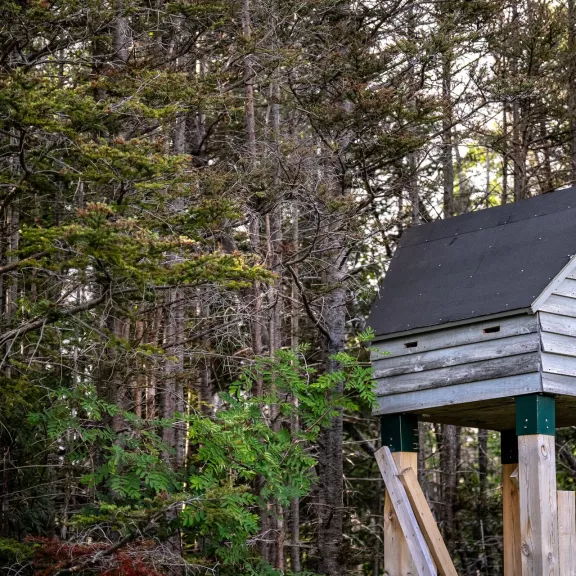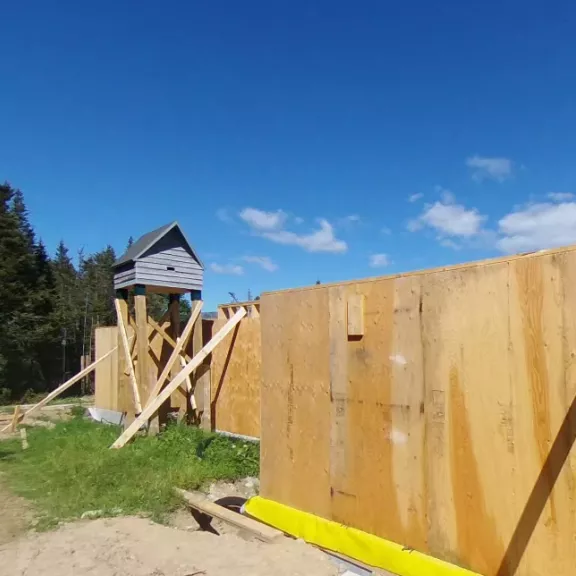
Gros Morne National Park is home to incredible terrain and wildlife, including the little brown myotis (commonly known as the little brown bat). This species of bat used to be the most common bat species in Canada. They do not migrate, but they can move up to 1,000 kilometres from summer roosts to winter roosts where they hibernate. The species is also endangered due to White Nose Syndrome, which is caused by a fungus that grows on the bat’s body.
Now, what do the little brown bat and Pomerleau have in common? They are both currently inhabiting Gros Morne National Park. Pomerleau is building a new visitor center for the Newfoundland and Labrador park. This construction involves the demolition of the original visitor centre, which includes a theatre that once was a popular roosting place for a colony of little brown bats.
Pomerleau employees met with Parks Canada to devise a plan and schedule that ensured the protection of the bats throughout the entire construction process. Originally, it was determined that the demolition of the theatre would not occur until after the bats’ roosting season from April to August, however, members of Pomerleau’s Gros Morne construction crew identified an advantage in demolishing the theatre before April. Doing so ensured that the bats would not roost in the theatre and construction could advance, preventing any future challenges with the bats during their roosting period.
To ensure that the bats had a more viable habitat, Parks Canada installed permanent bat condos before Pomerleau’s arrival onsite in an effort to relocate the bats to provide them with a new and permanent place to roost instead of within the building. With the theatre no longer being an option for the bats, the condos, which are located next to the building, have become the most habitable place for them. Together with Parks Canada, Pomerleau employees elevated the condos to the same height as the theatre roof, where the bats used to enter to roost. They also removed siding from the old visitor centre and added it to the bat condo to promote tactile familiarity. Throughout the entire construction process, Pomerleau has been reducing the amount of noise in the area to not disturb the bats during roosting period by incorporating schedule changes. Most of the heavy machinery work close to the bat roosts was completed before or after roosting season.

Pomerleau cares about communities, which include the surrounding environment and wildlife. When assigned to the job, Pomerleau’s Gros Morne team knew that the well-being and conservation of the endangered species was imperative. The preventative measures taken by the team alongside Parks Canada have successfully preserved the bats’ habitat and limited human-to-bat contact. There have been no interactions since Pomerleau started construction there earlier this year. The work and special consideration taken by the team is a testament to Pomerleau’s Environment, Social and Governance (ESG) commitments.
Want to learn more about little brown bats? Click here.